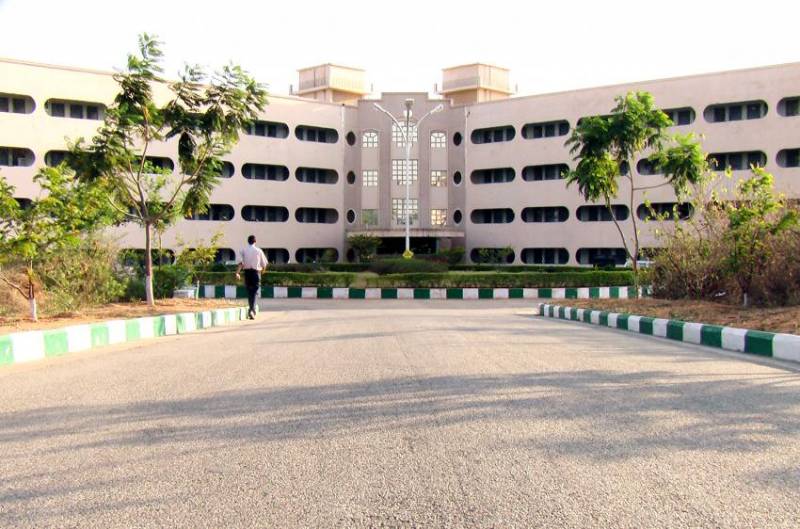IIIT-Hyderabad moves towards a complete plastic-free campus
By Abdul Rafeeq
Hyderabad: As the student-led zero waste initiative is gaining momentum throughout the country, International Institute of Information Technology Hyderabad (IIIT-H) has made a number of distinct efforts to eliminate plastic use.
Following the January 2019 Directive of the State Government on the total ban on single-use plastic, many colleges have already taken steps and some are in the process of finding ways to ban plastic from the campus completely.
The plastic on their campus comes from the small shops and units that sell food and everyday goods. Over the course of almost an year, the institution has moved away completely from using plastic to serve food in canteens. The canteen does not use plastic glasses, plates, spoons or straws anymore. Management uses alternatives that are plastic-free.
The mess stocks of plastic raw materials are supplemented by bulk plastic-free containers. Fruit juices are available in campus stalls and served in glass tumblers to replace plastic cups, minus straws, while the juice is still around in tetra packs, there is also a push to slowly ease them out.
With food packaging, IIIT-H does not use plastic containers. Instead, students bring reusable containers to get food packaged out of the mess.
Campus guests are often surprised to find employees gracing the desks with stainless steel water bottles. The institute has turned down water that is typically found in single-use plastic bottles for more than a year now. This is the visible outcome of one of the first steps taken to reduce plastic use at the level of an organization. Likewise, in activities like meetings and conferences, plastic-free alternatives provide water supply.
In addition to the mess and stalls, much of the plastic issue has been traced back to the bags used by food suppliers to hold their food containers, the restaurant plans to come up with alternatives such as cardboard boxes.
The Stall Committee, which overlooks stall management, is currently working on buyers of packaged plastic products such as chips, cookies, chocolates to recruit campus vendors to reduce plastics use and produce fresh food.
The institute has maintained an organic farm for a long time, nourished with its own compost, kitchen waste in the form of peels, and so on, remains a source of fodder for its supply of milk. In addition to installing solar water heaters, all new hostels are now equipped with Brushless DC fans that consume a fraction of the energy that regular fans normally consume. LED lights were also provided by regular tube lights.
Water recycling is designed to take a shot by switching from kitchen and bathroom recycling of greywater to toilet recycling of black water. It also collects rainwater from rooftops and is stored in large underground storage tanks.
With the advent of a flour mill on campus where wheat and Jowar flour are freshly grounded every week, IIITH aims to go one step ahead and add a small oil extraction facility as well. To replace the plastic water dispensers, efforts are being made in the form of water fountains to ensure that safe and clean drinking water is available throughout the campus.
With the prioritization and implementation of the 3 R's - ' Reduce, Reuse, and Recycle, - the institute certainly seems to be following the path of sustainability.